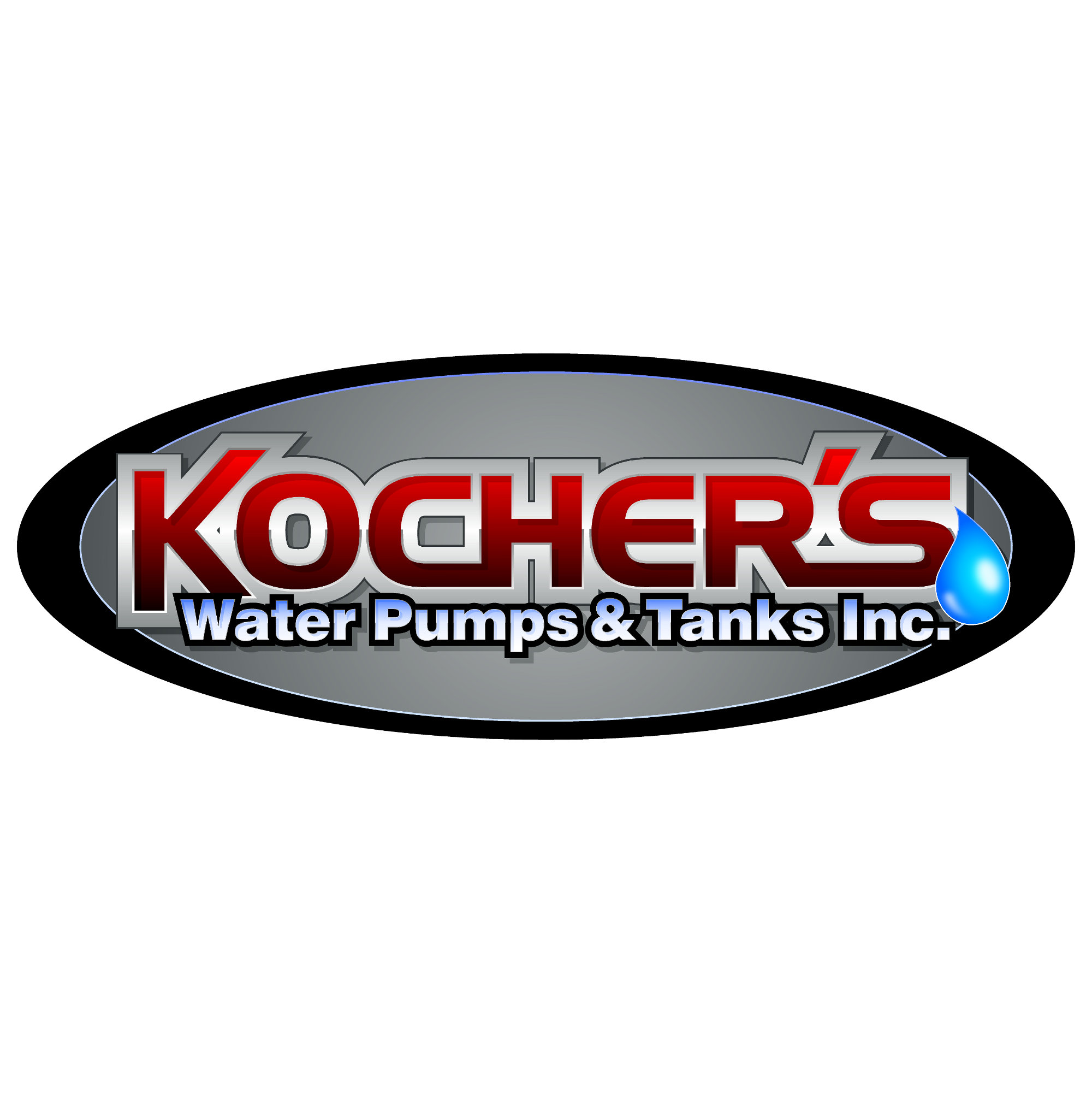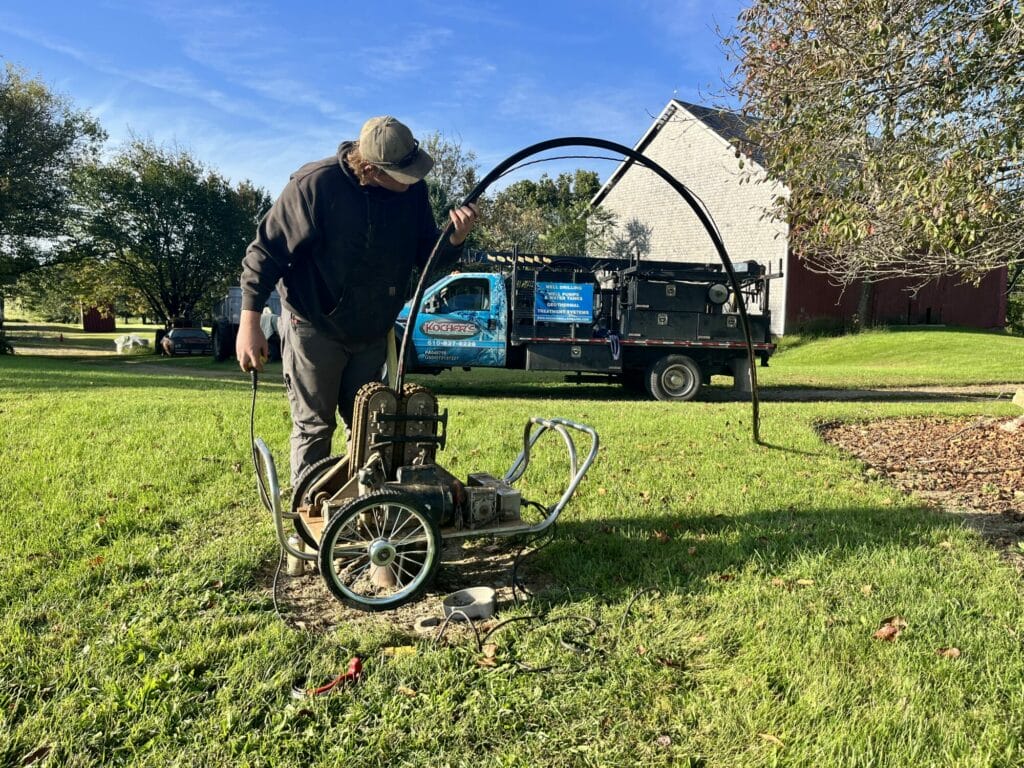You, as a homeowner, along with your licensed well contractor, play pivotal roles in maintaining the safety and functionality of your private water well. A well-maintained system ensures safe drinking water for your household and contributes to the broader goal of protecting groundwater resources. By remembering the acronym TIPS you can ensure the longevity and health of your private water source:
- T – Test your water,
- I – Inspect your well regularly,
- P – Protect your well,
- S – Seal unused wells.
Water Well Basics for Private Well Owners
Private wells are not just a source of drinking water; they’re a testament to a homeowner’s responsibility.
Unlike community water systems overseen by the Department of Health, the onus of maintaining a private well rests solely on the well owner. Here are some fundamental aspects every private well owner should be familiar with:
- Well System Components: Your well system comprises various parts, each playing a pivotal role in water extraction and distribution. Familiarizing yourself with these components is the first step in well management.
- Water Quality and Testing: The water from private wells can sometimes differ from public drinking water. It’s crucial to conduct annual water quality testing to ensure your water is free from contaminants and meets the standards set by the Safe Drinking Water Act.
- Protecting Your Well: Risks associated with private wells often stem from external contaminants. It’s your responsibility to ensure the area around your well is free from pollutants, be it surface water runoff or chemicals.
- Understanding Water Sources: Groundwater for drinking is extracted from beneath the earth’s surface. Being aware of the water state, whether it’s from a shallow source or a deeper aquifer, can help in understanding potential water quality problems.
- Regular Maintenance: Maintaining a well isn’t just about ensuring water flow. It’s about safeguarding the water source, ensuring the well depth remains consistent, and monitoring water levels. Regular water analysis can help detect any anomalies.
- Well Records and Resources: Always have a guide to wells handy. This guide, often provided by the National Ground Water Association or similar entities, can offer insights into well management. Moreover, keep records of your well’s history, from construction to repairs.
- Addressing Contamination: If you suspect your water may be polluted, it’s essential to act swiftly. Contaminated water poses health risks, and immediate water quality testing can help ascertain the problem.
Testing the Drinking Water Quality
Ensuring the water quality of your private well is paramount for the health and safety of your household. Drinking water sourced from groundwater can sometimes contain contaminants that are not immediately noticeable.
- Annual Well Water Testing: It’s recommended that well owners test their drinking water at least once a year. This ensures that the water in the United States, especially from private drinking water wells, remains safe for consumption.
- Contaminants: The presence of certain contaminants can affect the taste, smell, and appearance of your water. Regular testing can detect these early on, allowing for timely intervention.
- Local Water Quality Standards: It’s essential to be aware of the water quality standards set by the EPA. This will guide you on what to look out for in your test results.
Conducting Regular Water Well Inspections
Regular inspections of your water well are crucial to detect and address potential issues before they escalate. A well owner should be proactive in ensuring the domestic well remains in optimal condition.
- Visual Checks: At least once a month, inspect the physical structure of the well. Look out for any visible damages or signs of wear and tear.
- Well Contractor Consultation: Engage a well contractor or a licensed well driller for a thorough inspection. Their expertise can identify issues that might be missed in a casual inspection.
- Well Records: Maintain well records detailing every inspection, repair, or modification. This can be invaluable for future reference or if you decide to sell your property.
Protecting Private Wells from External Threats
The area surrounding your well plays a crucial role in its health:
- Keep Contaminants Away: Ensure no chemicals or potential pollutants like motor oil or pesticides are stored near your well.
- Regularly Check the Well Cover: A secure well cap ensures that the water in the well remains uncontaminated. Regular checks can prevent potential contaminants from entering.
- Maintain the Surrounding Area: Keeping the area around your well clean and free of debris ensures easy access for maintenance and prevents potential contaminants from entering the well.
Sealing Abandoned Wells: Protect the Groundwater
Abandoned wells pose a significant risk. They can become a direct channel for contaminants to reach the groundwater, affecting not just your private well but also the broader public water supply.
- Identification: Regularly inspect your property to identify any abandoned well. Over time, these wells can get obscured by vegetation or other structures.
- Professional Sealing: Sealing a well is not a DIY task. Engage a licensed well driller or well professional to ensure the well is sealed following the regulations for private wells.
- Documentation: Once a well is sealed, update the well records. This documentation can be crucial for Department of Environmental Health checks or property transactions.
The Importance of Regular Well Maintenance
Regular maintenance is the key to ensuring the longevity and health of your well:
- Water Quality: Over time, contaminants can seep into your well, affecting the quality of your drinking water. Regular checks can prevent this.
- Extending the Life of Your Well: Regular check-ups can extend the life of your well, ensuring a consistent source of clean water.
- Preventing Costly Repairs: Regular maintenance can help spot potential issues before they become significant problems, saving you money in the long run.
By adhering to this guide and understanding the importance of regular maintenance, private domestic well owners can ensure the longevity and performance of their wells, providing a consistent source of clean and safe drinking water.
Hiring a Professional Well Contractor
While some aspects of well maintenance can be tackled by homeowners, many intricacies demand the expertise of a seasoned water well contractor. At Kocher’s Water Pumps & Tanks Inc., we don’t just offer services; we offer peace of mind. With our years of experience and unwavering commitment to quality, you can be assured that your well is in the best hands. Here’s what we bring to the table:
- Perform Detailed Inspections: Our team doesn’t just skim the surface. We delve deep, inspecting the well construction, well screen, and other vital components to ensure everything is in optimal working order.
- Handle Repairs with Precision: From minor tweaks to significant overhauls, our team has the expertise and equipment to handle repairs efficiently, ensuring minimal downtime.
- Offer Maintenance Advice Tailored to Your Needs: Every well and its maintenance needs are unique. We provide invaluable advice tailored to your well’s specifics, ensuring it functions optimally for years to come.
Your well is a crucial asset, and its health directly impacts the quality of water you consume. Don’t leave its care to chance. Contact Kocher’s today at 610-837-8226 and let the experts handle your well’s needs.




